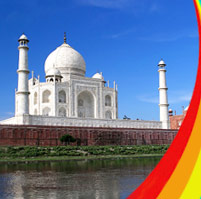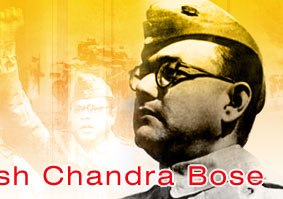The principles and the philosophy of Netaji Subhash
Chandra Bose were instrumental factors in his embracing of armed
revolution in the later part of his political career. Initially Bose was
a follower of the Gandhian way of freedom movement but years of travel
in European countries during exile and the ripening of mental faculties
with age made him disenchanted with the ways of the Indian National
Congress.
Subhash Chandra's hatred for the British ran deep and he vehemently
called for the immediate ouster of the colonial rulers from Indian soil.
Disappointed with the leniency shown by some Congress leaders towards
the British, Bose became increasingly convinced that the goal of
achieving freedom would remain a pipedream as long as the British held
sway over the land and peaceful protests would never be able to throw
the British out.
While outlining his vision for a free India, Subhash Chandra Bose
proclaimed that socialist authoritarianism would be required to
eradicate poverty and social inequalities from a diverse country like
India. He openly espoused for an authoritarian state on the lines of
Soviet Russia and Kemal Atatürk's Turkey. Bose was also an exponent
of socialism and opined that industrialization and Soviet-style
five-year plans held the key to a vibrant Indian nation.









